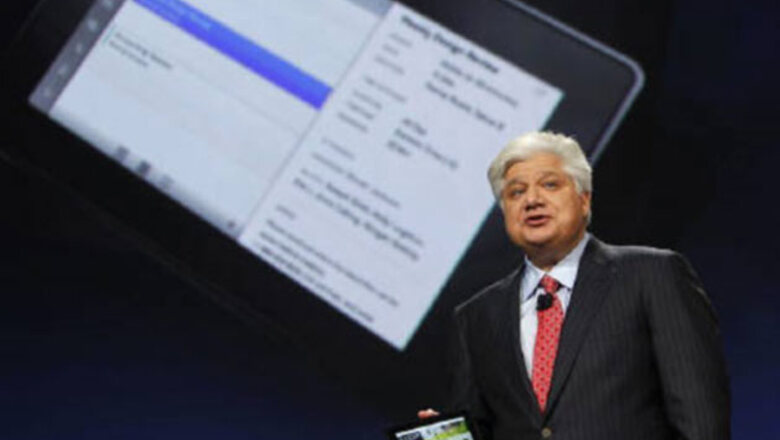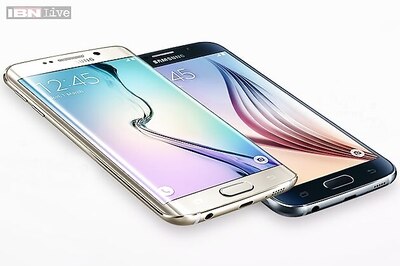
views
San Francisco: Research In Motion unveiled a tablet computer on Monday that it hopes will leapfrog Apple's iPad with its potential for social networking, media publishing and corporate uses.
The tablet, named BlackBerry PlayBook, has a seven-inch (18 cm) screen and dual facing cameras. It has WiFi and Bluetooth but needs to link with a BlackBerry smartphone to access the cellular network.
Shares of RIM jumped nearly 2 percent to $ 49.29 in after-hours trade following the announcement, made at the company's annual developers' conference in San Francisco.
"It's ultra-mobile and it's ultra-thin," co-Chief Executive Mike Lazaridis told the developers, who responded with intermittent applause. "PlayBook delivers a no-compromises web experience," he said.
PlayBook can mirror a BlackBerry phone, giving users a bigger screen to view media and edit documents, and wipes all corporate data once the link between the two devices is broken.
The PlayBook weighs 400 grams (14 ounces). It will launch with a dual-core, one gigahertz processor running a QNX kernel and operating system that can incorporate BlackBerry OS 6, which RIM introduced in its Torch smartphone in August.
DEVICE DU JOUR
The market for tablets - touchscreen devices larger than a smartphone and smaller than a laptop - has gotten more congested since Apple launched its iPad in April, with Samsung and Dell showing off releases in the past two months and others expected from Hewlett-Packard and Toshiba.
While the market's direction is relatively uncharted, most analysts agree success will be measured by which applications each tablet can run.
"RIM has a strong story to tell to developers to say - look, however you want to make things for this thing, we're giving you tools and a platform that will allow you to do that," said Forrester Research principal analyst Charles Golvin.
The QNX operating system uses industry standard APIs, or application programming interfaces, meaning developers should have little difficulty in making their games, software and other applications work on the device.
"All the code that is out there, and there is a huge source base out there, (it) is completely portable to QNX," said Dan Dodge, who co-founded and led the company until RIM acquired QNX less than a year ago.
RIM expects to ship the device to corporate customers and developers in October. It will become commercially available early in 2011.
RIM has yet to set an exact price but says it will fall in the lower range of prices for consumer tablets already in the suddenly congested market.
Asked if later versions will connect to advanced 4G networks now under development, RIM co-Chief Executive Jim Balsillie told Reuters: "That's not a question we're answering today, but it's not a hard one to guess at."
The absence of a direct link to the cellular network means network carriers may be less eager to subsidize the device or promote it heavily. But corporate IT departments will likely cheer about its ability to mirror a company-issued BlackBerry without retaining that data when that link is broken.
"It's compelling, certainly to an IT guy, if they can look at this tablet and say it's really nothing we have to lock down," said Kevin Burden from ABI Research. "An IT manager can look at this tablet and say we don't even need to put this on our asset-tracking list."



















Comments
0 comment